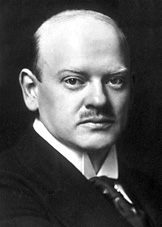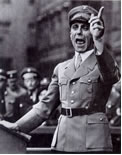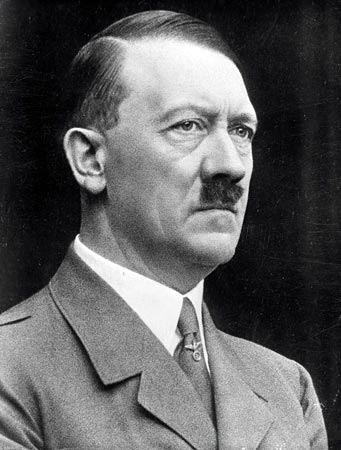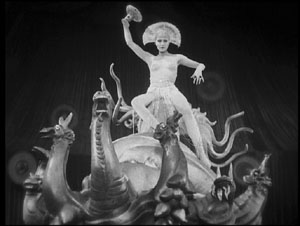
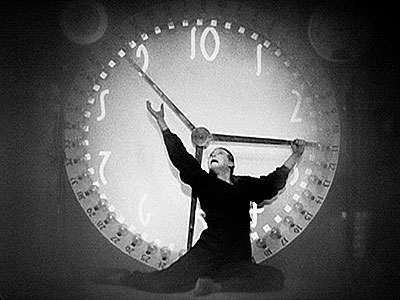
An examination of gender, religion,
and other issues
in one of SciFi's most famous films
| The effect of WWI and Hitler's rise to power on Metropolis | ||
|
Pictures, top to bottom: Gustav Stresemann, Joseph Goebbels, Adolf Hitler, Fritz Lang | |
The movie is said to be largerly based on Gustav Stresemann's Germany, a Germany that hoped for peace among European nations. Stresemann was a large supporter of WWI Germany until the policies started to change after 1918. Stresemann was responsible for attempts to stabilize Germany's currency, and maintaining peace throughout Germany and its surrounding countries when Hitler was beginning his campaign. In 1926, the year before Metropolis was released, Stresemann received the Nobel Peace Prize along with Aristide Briand, another German who helped Stresemann and one other create plans for security pacts between Germany and four other nations. If it is true that Lang was one of Stresemann's supporters, it is a possibility that Freder, with his negotiation skills and the power to bring people together in peace, was based off of Stresemann's efforts to restore Germany's place in the world. Fritz Lang first conceived his idea for Metropolis upon seeing New York for the first time. Despite the fact that his inspiration for the movie came from the United States, Lang vowed never to return there after the US film companies severely altered his film from the original cut. He changed his mind, however, after a short meeting with Joseph Goebbels. As Hitler was rising to power, Lang became more and more nervous about his half-Jewish heritage. This nervousness came to a head when the Minister of Propaganda asked Lang to a meeting early in the Nazi regime. Adolf Hitler had seen Metropolis a few years prior and was so impressed, he had decided that he wanted Fritz Lang to make the Nazi films. Goebbels had called the meeting to offer Lang the job. Lang asked for a day to mull the proposal over, but instead of returning to Goebbels office, fled to the United States under an assumed name without even withdrawing his money. He was out of Germany for another 25 years. Why was Hitler so interested in Lang's films to begin with? Lang's film previous to Metropolis - The Last Will of Dr. Mabuse - was clearly an attack on the Nazi ideals. Goebbels and Hitler merely thought that Dr. Mabuse only needed a socialist leader of his own to be defeated by and the movie could have ended much more favorably. Metropolis itself seems to advocate Nazism in some ways - the villain, Rotwang, seemed to embody some of the Jewish stereotypes being spread around (he practiced magic, lives apart from everyone else, and bears a shock of white hair much like Albert Einstein's). The real Maria is not as much as an activist as she is a gifted speaker, reflecting the Nazi views that women should be docile, while the evil robot Maria was strong-willed and free. The ending of the film does not offer any change in social structure in terms of equality - there is still the separation despite the increased communication. This is not the ending Lang imagined. He wanted the film to end with Freder and Maria leaving Earth in a rocket; Thea von Harbou wrote the ending that pleased the Nazis and later joined the Nazi party herself. The movie ending is more of a crowd pleaser than a statement, as Lang would have preferred it. Some also believe that the resolution at the end of the film is does not benefit both groups as much as it allows Joh more control over the workers. By conceding to the heart - Freder - Joh has appeased the angry masses but still has complete control over them. Though there now exists the heart as a mediator, Joh ultimately has control over his own son and this heart is subject to Joh's persuasion more than anything else. This control could have perhaps played a part in inspiring Hitler's desire to rule with out inciting too much of a revolt.
|
||
